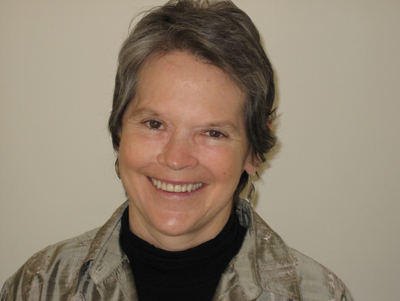
(RNS11-MARCH28) Karen King teaches at Harvard Divinity School and is co-author (with Elaine
Pagels) of “Reading Judas: The Shaping of Christianity.” For use with RNS-10-MINUTES,
transmitted March 28, 2007. Religion News Service photo courtesy of Viking Penguin.
(UNDATED) Former psychotherapist Alysa Stanton, 45, will become the first female African-American rabbi when she is ordained June 6 at the Plum Street Temple in Cincinnati, Ohio.
After receiving her master’s degree from the Reform movement’s Hebrew Union College-Jewish Institute of Religion, she and her teenaged daughter will move to Greenville, N.C., where Stanton will serve as rabbi of Congregation Bayt Shalom.
Some answers have been edited for length and clarity.
Q: You’re a convert. What brought you to Judaism?
A: My mom is apostolic Pentecostal, and she always instilled that we should have a sense of faith, and that each of her children should have a spiritual base, regardless of what that base is, and she gave me the freedom to choose for myself.
I studied everything from Eastern religions to Charismatic Christianity, and when I was in my early 20s, Judaism is where I found a home. I have two sisters and two brothers, and we have a Roman Catholic, a Pentecostal, one nondenominational and one non-practicing. We’re an ecumenical family.
Q: Your faith is becoming more diverse, according to surveys that estimate that about one-fifth of American Jews are now of African, Asian, Latino or other non-traditional backgrounds. What was it like when you first converted?
A: I had a traditional conversion, through a shul (synagogue) that is now modern Orthodox. When I converted, traditional conversions were very private and I think my conversion was somewhat of an oddity in the mid `80s. But now, conversions are more open and celebratory.
Q: What made you decide to become a rabbi?
A: I think I was running from it for many years. If someone had asked me 10 years ago, `Are you going to be a rabbi?’ I would have laughed, but I say God has a sense of humor.
The journey started when a cantor taught me to chant Torah. Something stirred in me. I became a cantorial soloist, I taught religious school. I thought I was too old, I had adopted my little girl, and it didn’t seem prudent to make such a life change mid-stream. But God kept sending signs. It’s been a journey of faith and perseverance and tenacity.
Q: Which do you think will be more challenging: being a female rabbi or an African-American rabbi?
A: I’m a rabbi who happens to be an African-American woman, but I’m not coming as the “black rabbi,” I’m coming as a rabbi. Just being a rabbi period, and being a female, and being the first African American female rabbi in the world will carry its own challenges, joys, triumphs and trials because it’s paving new ground. Some of the challenges that I will face, I’m not aware of yet.
Q: In addition to those challenges, you are also a single mother. How had this impacted your spiritual path?
A: I adopted my child as a single person, when she was 14 months old. She’s 14 now. She’s excited about the ordination, but she has mixed emotions about the move. She’s spent half of her life in Cincinnati but she realizes that we’re starting a new chapter in the journey and she has faith in the choices I make for us.
Q: As a Reform rabbi who grew up in Colorado, how did you end up choosing a Conservative congregation in North Carolina?
A: It seems like a wonderful city. They were my first choice and I was their first choice. I was a student rabbi at a congregation in Alabama and had a very good experience there, so that made me go outside the box and look at southern congregations as well.
I’ll be their first Reform rabbi. We will have inclusive services and we will determine how that will look when I get there. Our society is moving into a new realm of realizing that inclusion is more beneficial than exclusion.
Q: Where do you see yourself in 10 years?
A: Wherever God will have me working, doing the work. I consider myself a rabbi of the people, helping people on their spiritual path, whatever that path may be. I see that continuing for the rest of my life. I’m excited, I’m in awe, and I have a healthy dose of fear. I’m honored that I have been chosen to walk this path.




